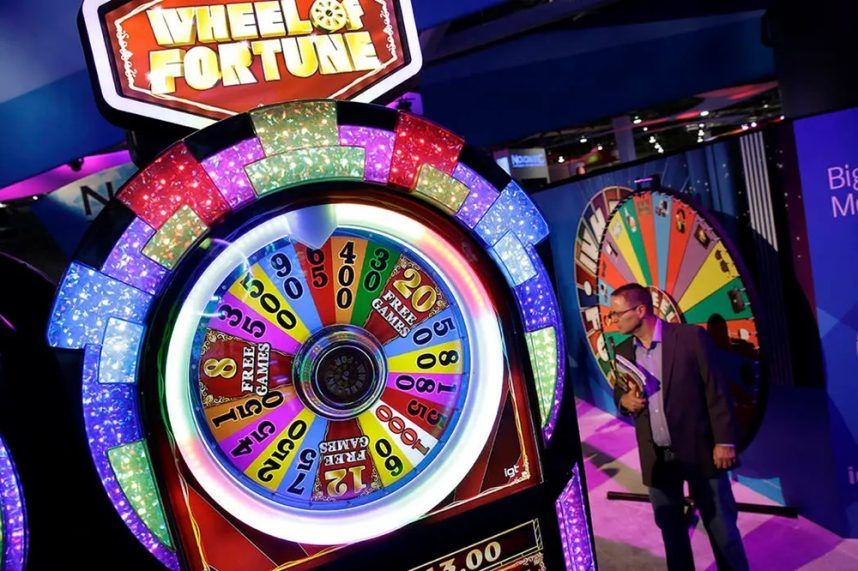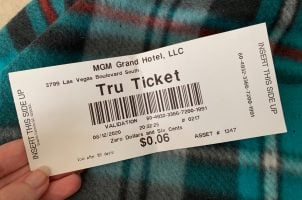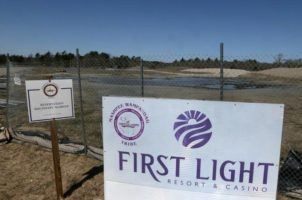IGT’s Wheel of Fortune Slot Like ‘Rigged’ Roulette, Claims Lawsuit
Posted on: November 28, 2024, 02:33h.
Last updated on: November 29, 2024, 09:12h.
A new class-action lawsuit filed in the Nevada federal court last week accuses the popular Wheel of Fortune slots of “systematically defraud[ing] casino patrons out of their hard-earned money.”

The plaintiffs’ beef with the slot and its various spin-offs is that their bonus-wheel game, which is based on the long-running game show, “deceives” players into believing they have an equal chance of landing on any of its segments. That’s because it appears to be a truly mechanical spinning wheel, such as a roulette wheel, per the complaint.
However, the wheel doesn’t operate “pursuant to the laws of physics” because “the outcome is predetermined by an internal computer that Defendants have programmed to ensure the wheel stops much more frequently with the indicator pointing at one of the segments with a lower monetary amount.”
This is the modern-day equivalent of “a roulette wheel with a magnet surreptitiously affixed beneath the green zero and double-zero segments,” the lawsuit claims.
‘False Association’
The suit, brought by four former players, names the manufacturer and distributor, IGT, and a handful of casino operators, including MGM Resorts, Bally’s Corp, and Penn Entertainment.
The plaintiffs also argue that the slot’s close association with the TV show reinforces the perception among players that they’re getting an equal chance to win all the prizes.
It creates a “false association” between the game show’s spinning wheel, which is subject to random chance probabilities of landing on any given segment, and the “rigged” wheel on the slot, according to the complaint.
The plaintiffs seek compensatory damages for themselves and for a putative class comprised of all Wheel of Fortune players at the casinos that are named as defendants. Plaintiffs also seek an injunction against the defendants from operating the games.
Wheels Within Wheels
The Wheel of Fortune slot, like all modern slots, uses a random number generator (RNG). The plaintiffs are right in that players don’t have an equal chance of hitting each of the money amounts on the wheel. But crucially, all players do have as equal a chance of winning each of the money amounts as one another – and that’s what makes them “fair” in the eyes of regulators.
If the wheel has 24 segments, then each segment will have separate odds of being hit, i.e. the odds of hitting the top prize won’t be 23 to 1, it may be 500 to 1 or more.
All of these odds are predetermined by the RNG, which selects a winning bonus payout at random, but according to each segment’s predetermined frequency.
Slot machines are typically programmed to pay out a “theoretical payout percentage,” or long-term RTP (return to player), which varies among jurisdictions.
The slot machine manufacturer sets the RTP in accordance with local regulations. A jurisdiction’s gaming regulator must authorize the RNGs and game codes for each machine. Typically, casinos cannot alter the RTP without permission from the regulator.
Year after year, regulators in Nevada and jurisdictions across America have approved the dynamics of Wheel of Fortune slots. Meanwhile, since the state of Nevada has passed laws to legalize slots and has authorized the Nevada Gaming Commission (NGC) to regulate them, it’s difficult to see where a federal judge can go with this one.
And that’s perhaps, unfortunately, where the wheels come off this lawsuit.
Related News Articles
MGM Resorts Class Action Lawsuit Certified in Nevada Federal Court
Koin Mobile Hits Everi with Antitrust Lawsuit Over Cashless Payments
Most Popular
Jackpot News Roundup: Two Major Holiday Wins at California’s Sky River Casino
PUCK, NO! Health Dept. Closes Las Vegas Wolfgang Puck Restaurant
Oakland A’s Prez Resigns, Raising Questions About Las Vegas Move
MGM Osaka to Begin Construction on Main Resort Structure in April 2025
Most Commented
-
UPDATE: Whiskey Pete’s Casino Near Las Vegas Closes
— December 20, 2024 — 33 Comments -
Zillow: Town Outside Las Vegas Named the Most Popular Retirement City in 2024
— December 26, 2024 — 31 Comments -
Oakland A’s Prez Resigns, Raising Questions About Las Vegas Move
— December 27, 2024 — 9 Comments -
Caesars Virginia in Danville Now Accepting Hotel Room Reservations
— November 27, 2024 — 9 Comments
















Last Comment ( 1 )
I hit a $1000 on a bonus spin on WOF. I was expecting to hit the $40. Do I have a case?